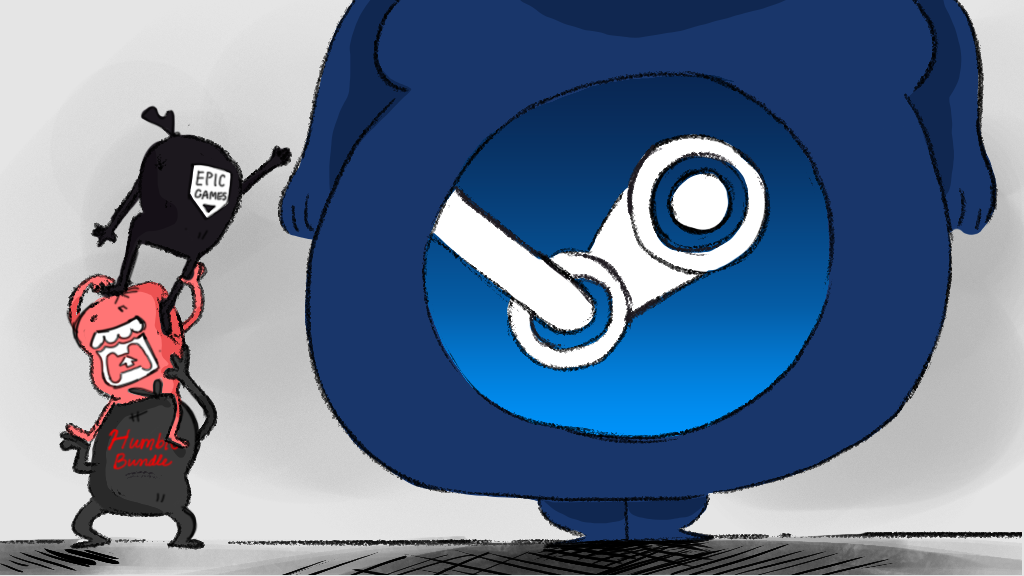The Epic Games Store
by Erin Brache | published Sep. 22nd, 2021
When
One company is looking to take on Steam’s chokehold of the gaming industry with a store of their own, Epic Games.
The Advantages of the Epic Games Store
Epic Games is widely known as the creators behind one of the biggest games of all time, Fortnite. Fortnite is a battle royale first person shooter with
For PC players, Fortnite is free to play and only available through Epic Games’s own store.
Fortnite was the gateway to showing gamers the
The Epic Games store has another advantage over Steam; not for the buyers, but for the sellers.
Steam, as well as physical stores, mobile stores and console stores, generally take a 30% cut of all game sales. The Epic Games store, however, only takes 12%. That is an impressive deal to game developers, as it means more money per sale of their game if they sell it on the Epic Games store.
The only other widely used stores that can compare to those deals are Humble Bundle, where
Epic Games v. Apple
Epic Games recently sued Apple in federal court over the belief that Apple is stifling competition and "
These in-app purchases can be used to buy cosmetic items or advantages in game.
If you own an Apple device, the only way you can download apps is through the Apple App Store. Apple products do not allow third party applications or stores on their devices. The cost of operating on Apple's storefront is a 30% cut of purchases made over their platform. Epic Games bypassed this 30% charge by handling in-game purchases outside of the app store, which prompted Apple to ban Fortnite from the Apple App Store.
The trial took a total of three weeks, and no ruling has been decided yet.
Internet companies such as Spotify, Facebook and the Match Group, a technology company that owns online dating services, have publicly supported Epic Games for the lawsuit.
Itch.io is a very different platform, with almost all of the games sold being indie games, or games without a major game publisher.
Most of the games made for itch.io are part of a game jam, a contest where game developers have a short amount of time to make a game from scratch. At the end of the competition, the games are released into the wild and are rated by users. At the end, the game with the best rating wins.
Hundreds of game jams are in progress on itch.io
As of May 24, 2021,
Because Epic Games wanted to include itch.io as an app inside of the Epic Games Store, itch.io was mentioned in the Epic Games v Apple lawsuit.
Humble Bundle is another online video game store that has been rising in popularity recently. Humble Bundle's most intriguing pull are their "bundles," where buyers pay a minimum amount for a collection of curated games. Users can also pay any amount above the minimum price to give extra money to the developers, Humble Bundle, and one of the charities that Humble Bundle gives to.
For example, a bundle that just recently passed was the "Best of Bandai Namco" bundle, where for a minimum of $20, buyers would get 9 games, including Katamari Damacy REROLL, Little Nightmares Complete Edition and TEKKEN 7.
Every bundle has smaller versions of the original bundle, where you get less games for less money. Users can freely adjust how much of the money spent goes
This is an exciting deal for gamers who want to not only buy games for a cheap price, but also want their money to go towards good causes.
Conclusion
With
Video game buyers are starting to take notice of outside retailers, and if the Epic Games v Apple lawsuit goes in the way of Epic Games, these large retailers might start to get nervous.
With interest from game developers and players alike, it is likely that the Epic Games store might take a bit of the wind out of 



